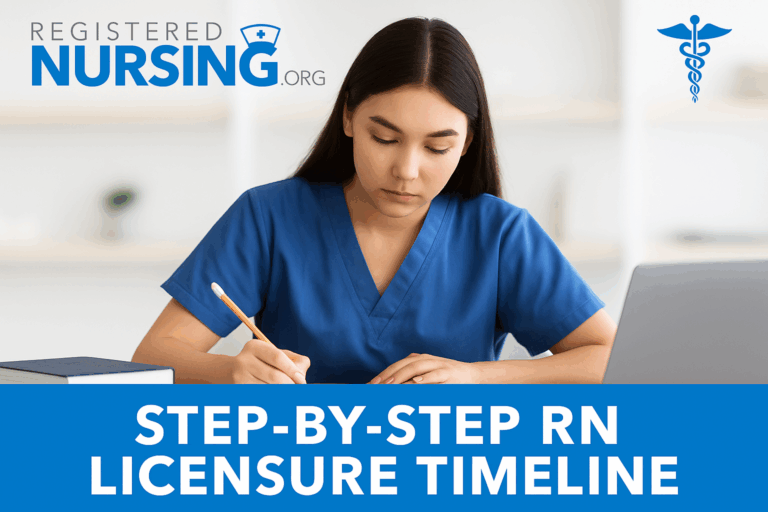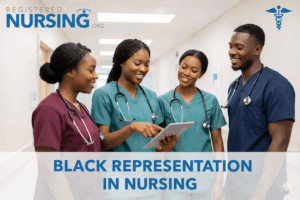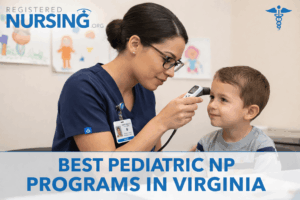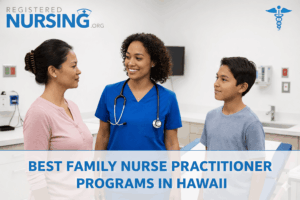A Step-by-Step Timeline for Getting Licensed as an RN in Your State
- Step 1: Choose and Complete an Accredited Nursing Program
- Step 2: Apply for RN Licensure with Your State Board of Nursing
- Step 3: Register for the NCLEX-RN Examination
- Step 4: Complete Required Background Checks and Fingerprinting
- Step 5: Pass the NCLEX-RN and Await Official Licensure
- Step 6: Start Job Searching and Prepare Your RN Resume
- Overall RN Licensure Timeline (Approximate)
- Frequently Asked Questions (FAQs)
- Latest Articles & Guides

Becoming a Registered Nurse (RN) is a rewarding decision that opens doors to a wide range of healthcare careers. However, the licensing process can feel overwhelming when you're just starting out. Each state has its own Board of Nursing (BON), which means the exact steps can vary, but the overall pathway is similar across the U.S.
This guide walks you through a practical, step-by-step timeline you can expect as you work toward RN licensure. Whether you’re just exploring nursing school options or are about to graduate, understanding the process ahead can help you avoid delays and feel more confident about your next steps.
Step 1: Choose and Complete an Accredited Nursing Program
Your RN journey begins with formal nursing education. To qualify for licensure, your program must be approved by your state's Board of Nursing and accredited by a recognized nursing education accrediting agency (such as ACEN or CCNE).
Common Educational Pathways to RN Licensure
| Nursing Pathway | Approximate Length | Resulting Credential |
| Associate Degree in Nursing (ADN) | 2–3 years | RN eligibility |
| Bachelor of Science in Nursing (BSN) | 4 years | RN eligibility; opens more career options |
| Direct-Entry Master's in Nursing (for non-nursing bachelor's holders) | 2–3 years | RN eligibility + graduate coursework |
Step 2: Apply for RN Licensure with Your State Board of Nursing
Before you can take the NCLEX-RN exam, you'll need approval from your state's Board of Nursing.
This step typically includes:
- Submitting a licensure application (usually online)
- Paying an application fee
- Requesting official transcripts from your nursing school
- Providing identification (name, address history, etc.)
Depending on your state, your nursing school may submit your graduation verification directly.
Step 3: Register for the NCLEX-RN Examination
The NCLEX-RN is the national exam required to obtain RN licensure in every U.S. state and territory. You will register for the exam through Pearson VUE after your Board of Nursing confirms your eligibility.
What to Expect:
- Exam fee: Typically around $200
- Computer adaptive format; question difficulty changes based on performance
- Testing available year-round at authorized testing centers (and in some cases, secure online proctoring)
Be sure you allow some study time between graduation and testing. Many students schedule the NCLEX four to eight weeks after graduating.
Step 4: Complete Required Background Checks and Fingerprinting
Nearly all states require RN applicants to undergo:
- State and/or federal background checks
- Fingerprinting
- Possible drug screening
These checks ensure patient safety and may take anywhere from a few days to several weeks to process. Starting this step early can prevent delays in receiving your RN license.
Step 5: Pass the NCLEX-RN and Await Official Licensure
Once you take the NCLEX:
- You may receive unofficial results within 48 hours (depending on the state)
- Official results are sent to your Board of Nursing
- Your Board will issue your RN license once all requirements are satisfied
Typical Licensing Timeline After NCLEX
| Step | Estimated Time |
| NCLEX scheduling | 1–4 weeks |
| NCLEX testing and scoring | 2–10 days |
| State review and license issuance | 1–6 weeks |
Some states also issue a temporary permit, allowing you to work before your official license arrives.
Step 6: Start Job Searching and Prepare Your RN Resume
Once your RN license is active, you can begin applying for entry-level RN roles. New graduates commonly work in:
- Hospitals
- Long-term care facilities
- Home health agencies
- Outpatient clinics
- Community health centers
Tips for a Strong New-Grad RN Resume:
- Highlight clinical rotation experiences
- Include certifications like Basic Life Support (BLS) or Advanced Cardiovascular Life Support (ACLS)
- Mention teamwork, patient communication, and electronic documentation skills
Many healthcare employers also offer nurse residency programs that support new RNs in transitioning to professional practice.
Overall RN Licensure Timeline (Approximate)
| Phase | Estimated Length | Key Milestones |
| Nursing education | 2–4+ years | Complete ADN or BSN program |
| State license application | 1–3 weeks | Submit application & transcripts |
| NCLEX registration & scheduling | 1–4 weeks | Receive Authorization to Test (ATT) |
| Background check processing | 1–6 weeks | Submit fingerprints & screenings |
| NCLEX exam & scoring | Several days to 1 week | Take exam and receive results |
| License issuance | 1–6 weeks | State verifies eligibility and issues license |
Total estimated time from finishing school to RN license:
Approximately 4–12 weeks, depending on your state and processing times.
Frequently Asked Questions (FAQs)
Q: Can I work as a nurse before my license is issued?
A: Some states allow graduates to work under a temporary or interim permit, usually under the supervision of a licensed RN. Check with your state Board of Nursing.
Q: How soon should I schedule the NCLEX after graduation?
A: Most students take the NCLEX within 4–8 weeks of graduating. Scheduling too early can impact your readiness; scheduling too late may prolong entry into the workforce.
Q: Do licensing steps vary by state?
A: Yes. While the NCLEX and core requirements are the same, processing times, fingerprinting requirements, and temporary permit options vary. Always check your state-specific regulations.
Q: What happens if I don't pass the NCLEX on my first try?
A: You can retake the exam, though you may need to wait a mandated time period (often 45 days). Many Boards of Nursing also require remediation planning.
Latest Articles & Guides
One of the keys to success as a registered nurse is embracing lifelong learning. Our articles and guides address hot topics and current events in nursing, from education to career mobility and beyond. No matter where you are on your nursing journey, there’s an article to help you build your knowledge base.
Browse our latest articles, curated specifically for modern nurses.



